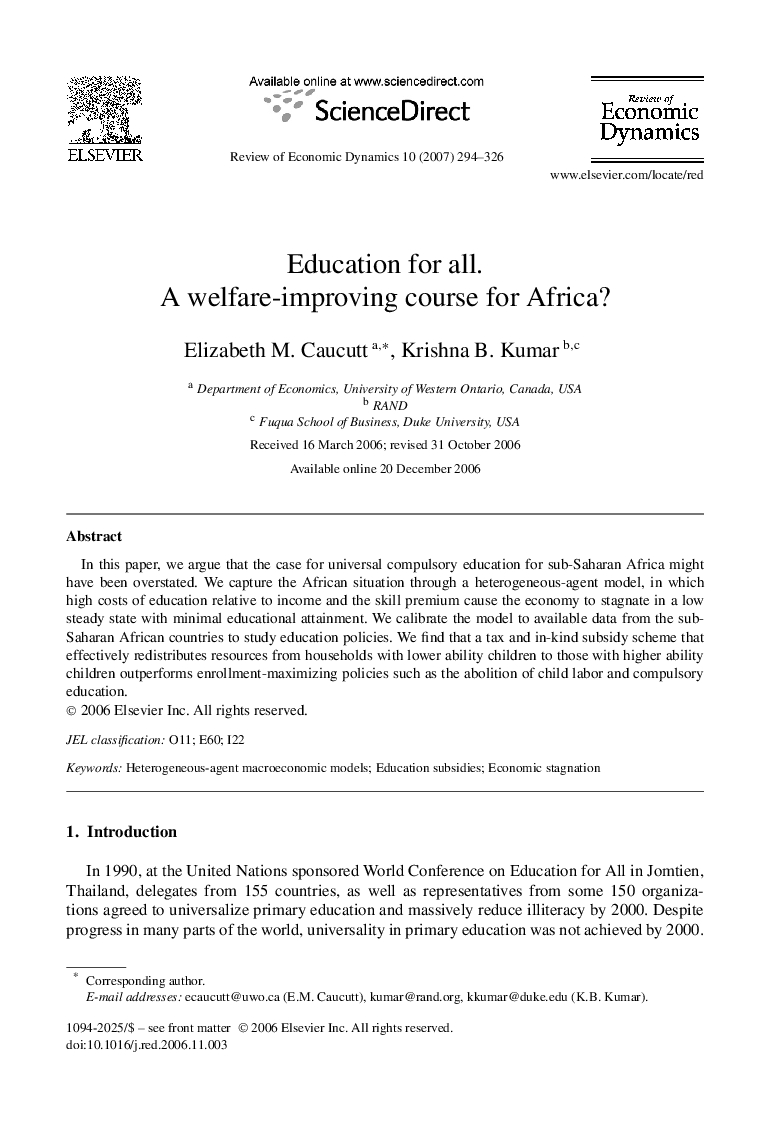| Article ID | Journal | Published Year | Pages | File Type |
|---|---|---|---|---|
| 987045 | Review of Economic Dynamics | 2007 | 33 Pages |
Abstract
In this paper, we argue that the case for universal compulsory education for sub-Saharan Africa might have been overstated. We capture the African situation through a heterogeneous-agent model, in which high costs of education relative to income and the skill premium cause the economy to stagnate in a low steady state with minimal educational attainment. We calibrate the model to available data from the sub-Saharan African countries to study education policies. We find that a tax and in-kind subsidy scheme that effectively redistributes resources from households with lower ability children to those with higher ability children outperforms enrollment-maximizing policies such as the abolition of child labor and compulsory education.
Related Topics
Social Sciences and Humanities
Economics, Econometrics and Finance
Economics and Econometrics
Authors
Elizabeth M. Caucutt, Krishna B. Kumar,
